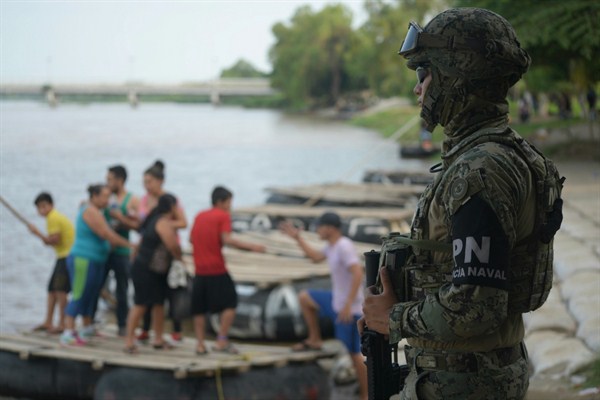CHIQUIRINES, Guatemala—In August, Abner Lopez Macario, a 30-year-old farmer and father of two, found himself out of luck and back in Chiquirines, a town in the muggy coastal lands of Guatemala surrounded by sprawling banana plantations. Far from being a bittersweet return after years abroad, Lopez Macario’s homecoming was an admission of defeat.
Three months earlier, after a 20-day trek through Mexico guided by a migrant-smuggler, he, his wife and his two sons made it all the way to the border of the United States in the back of a truck. Upon reaching El Paso, Texas, they had sought out U.S. border officials to ask for asylum. Because he and his wife were with their children, Lopez Macario had expected the family to be released into the U.S. until their claim was processed. After all, that’s what he’d been led to believe by relatives, as well as smugglers and local news outlets back home.
But because of the Migrant Protection Protocols, a new U.S. government policy implemented in January that requires some people seeking asylum in the U.S. to await their court dates in Mexico, Lopez Macario and his family were sent back to the notorious Mexican border city of Ciudad Juarez. There, they stayed in an overcrowded shelter with hundreds of other migrants, some of whom had already been to court in the United States, but had been sent back to Mexico pending further court dates months later.

